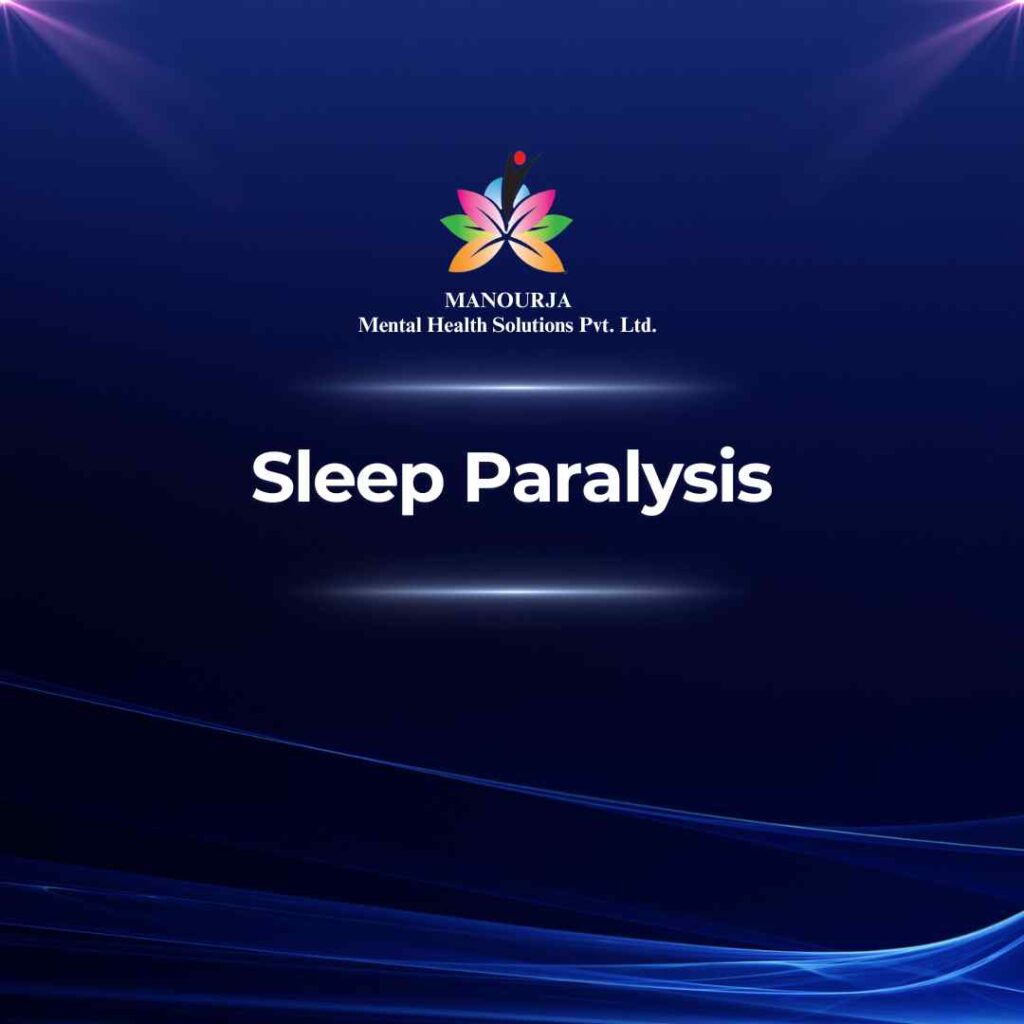Sleep Paralysis

Sleep Paralysis is a phenomenon that occurs either when falling asleep or upon waking up, during which a person is consciously aware but unable to move or speak. It happens during the transitions between wakefulness and sleep, and while it can be a terrifying experience, it is generally considered harmless.
Symptoms of Sleep Paralysis
- Inability to Move or Speak: During an episode, the individual is awake and aware but cannot move, speak, or react.
- Hallucinations: Many people experience vivid hallucinations during sleep paralysis. These can be visual, auditory, or sensory and are often distressing. Common hallucinations include sensing an evil presence in the room, hearing sounds like footsteps or whispering, and feeling pressure on the chest.
- Breathing Difficulty: Some individuals report feeling a weight on their chest, making it difficult to breathe. This is often more related to fear and panic than an actual restriction of breathing.
- Duration: Episodes typically last from a few seconds to a couple of minutes. After the episode ends, people are able to move and speak normally, though they often feel unsettled.
- Conscious Awareness: Despite the inability to move, individuals are fully conscious and aware of their surroundings during an episode.
Forms of Sleep Paralysis
Sleep paralysis is typically classified into two types:
- Isolated Sleep Paralysis (ISP): This occurs independently without any relation to other sleep disorders. ISP episodes are infrequent and may occur only once or a few times in a person’s lifetime.
- Recurrent Isolated Sleep Paralysis (RISP): This form involves recurrent episodes of sleep paralysis without the presence of narcolepsy. Individuals experience multiple episodes over time.
Treatment of Sleep Paralysis
Since sleep paralysis is usually an isolated and transient experience, it often does not require any formal treatment. However, recurrent episodes can significantly impact sleep quality and lead to fear of sleeping. Here are some strategies to manage and potentially reduce the occurrence of sleep paralysis:
- Improve Sleep Hygiene: Establishing regular sleep patterns, creating a comfortable sleep environment, and ensuring adequate sleep can help reduce episodes.
- Manage Stress and Anxiety: Since stress and mental strain can trigger episodes of sleep paralysis, managing stress through relaxation techniques, mindfulness, meditation, or professional therapy can be beneficial.
- Avoid Sleep Deprivation: Lack of sleep is a significant trigger for sleep paralysis. Ensuring a full night’s sleep on a regular basis may help prevent episodes.
- Lifestyle Adjustments: Reducing the intake of caffeine and nicotine, especially in the hours close to bedtime, can improve overall sleep quality and reduce sleep disturbances.
- Positional Therapy: Some people report a higher frequency of sleep paralysis episodes when lying on their backs. Sleeping in a different position may help reduce occurrences.
- Medical Review: For frequent episodes of sleep paralysis, a review by a healthcare provider may be necessary to rule out underlying conditions like narcolepsy or to address any other sleep disorders.
- Education and Reassurance: Understanding that sleep paralysis is generally harmless can alleviate some of the anxiety associated with episodes.
If sleep paralysis is frequent and associated with significant distress or fear, consulting a sleep specialist might be advisable. They can provide further insights into management strategies and explore deeper underlying issues, ensuring better sleep health and quality of life.
At MANOURJA, we believe in the transformative power of counseling. Our experienced therapists offer a safe and supportive space where you can explore your thoughts, emotions, and challenges. Through personalized counselling sessions, we’ll work together to develop coping strategies, build resilience, and achieve lasting positive change. Discover the path to a healthier, happier you with MANOURJA counselling services.
MANOURJA Rehabilitation Services
At MANOURJA, we’re dedicated to helping you in rebuild your life, after difficult times. Our rehabilitation services focus on understanding what you need to move forward, whether you’re recovering from addiction, trauma, or any psychological – social challenges. We create personalized plans, that are all about helping you, regain your strength and find hope again. With a caring team by your side, you’ll have the support to make real progress and take steps toward a brighter, healthier future.
